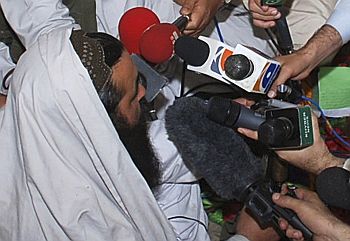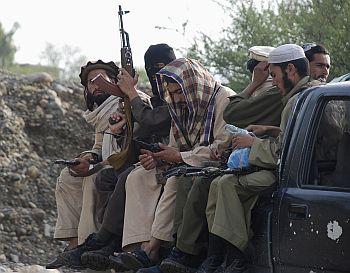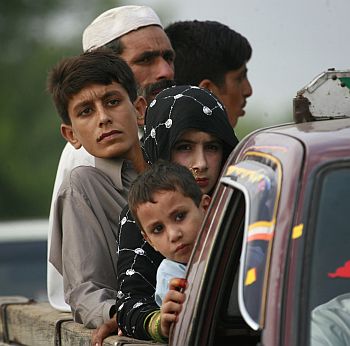 | « Back to article | Print this article |
Pak Taliban won't deny Baitullah's death, if true
The co-ordinated hunt for Baitullah Mehsud, the Amir of the Tehrik-e-Taliban Pakistan, undertaken by the intelligence agencies of Pakistan and the United States scored a major success early on the morning of August 5, 2009, when an unmanned US aircraft (drone), acting on intelligence furnished by a source of the Pakistani intelligence from South Waziristan fired two missiles on the house of the father of the second wife of Baitullah, Malik Ikramuddin, in the Zangarha area, 15km to the north-east of Ladha in South Waziristan.
Eight persons were killed. Seven of them have been identified by local sources as the second wife of Baitullah and six of his bodyguards. The identity of the eighth person has not yet been established, but it is widely believed that the eighth person killed was Baitullah, whose body was blown to pieces by a missile. The confirmation of his death, if true, will ultimately come from the TTP after it has chosen his successor. The TTP, in keeping with its tradition, will not deny his death, if true.
Image: File photo of Taliban commander Baitullah Mehsud speaking to reporters in Pakistan's South Waziristan tribal region
Photographs: Reuters
Taliban fears of a mole in their midst
The accurate strikes coming one after the other on the hide-outs of the TTP -- even if they did not kill any important leader -- created suspicions among the leaders that their organisation had been penetrated by either the US or the Pakistani intelligence, and they started having fears of a mole in their midst. This created a certain demoralisation. Their new focus was more on identifying the mole and saving themselves than on launching new operations.
Image: Pakistani Taliban wait for the arrival of their leader Mehsud during a visit of media team in South Waziristan on May 24, 2008
Suicide attacks may decline in Pakistan
Before the attack of August 5, there was speculation that the Pakistan army was in touch with Baitullah's father-in-law in order to explore the possibility of another cease-fire. It is not clear whether the father-in-law's reported contacts with the army had played a role in facilitating the attack.
The writer is Additional Secretary (retd), Cabinet Secretariat, Govt. of India, New Delhi, and, presently, Director, Institute For Topical Studies, Chennai. E-mail: seventyone2@gmail.com)
Image: A family, who fled the military offensive against the Taliban in the Swat Valley, returns home


